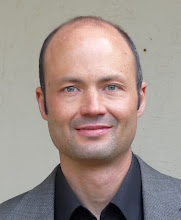
I am just plain quoting an article this time because I wanted to write about this today anyway. I saw this great little piece and decided I'll be lazy. Apparently, there are still plenty of people in the world who still need reminding that socialism is idiotic and pointless, and leads to pitiful outcomes.
This guy, Chavez has had free reign for a decade. He has seized tons of private property, including belonging to other countries, he has brought foreign investment to a halt because property isn't safe. They are bathing in natural resources, and have been able to sell their plentiful oil at a high price for years, yet they can't even keep the electricity on in the capital city? There is a murder every couple of minutes in some cities. And food shortages? What the heck? Typical socialist results...pathetic.
"...In the Bolivarian worker's paradise of Venezuela, Hugo Chavez has now had power for about 10 years. One would think that he has had enough time to demonstrate the wisdom of his socialist ideas. During his time in power, he has seized and nationalized key industries, vastly increased government spending, and imposed currency and price controls. And what has Chavez accomplished?
Inflation has reportedly been raging at 25% and higher in Venezuela. The Wall Street Journal recently reported that "Venezuela has ceased to produce meaningful amounts of food, medicine and other basic goods under Mr. Chavez." Because of Venezuela's currency controls, Venezuelan citizens and companies have needed govenment permission in order to obtain dollars at the official government rate. This led to a black market, where people could buy the U.S. dollar without government permission.
In March, 2009, Mr. Chavez took steps to seize control over food production in his country. He imposed production quotas and price controls for cooking oil, white rice, sugar, coffee, flour, margarine, pasta, cheeses and tomato sauce. Although rice producers insisted that it cost them 4.41 bolivars to produce a kilo of white rice, the government imposed a maximum price limit of 2.15 bolivars per kilo. Other price controls had been in place for several years prior to 2009. Instead of keeping prices stable, the price controls had spurred the growth of the black market. Venezuela became more and more reliant on imported food because Venezuelan farmers would not supply food staples at government-mandated prices.
In early January, 2010, Mr. Chavez announced the devaluation of the bolivar, the national currency. The bolivar was cut in half, from 4.3 per dollar to 2.15 per dollar, for most imports and transactions. The Venezuelan central bank also announced that it will also subsidize a stronger 2.6-per-dollar rate for imports of food, medicine and other essential items. Not long after the devaluation was announced, Venezuelans reportedly flocked to electrical goods stores, fearing that prices on imported goods would double.
A few days after announcing the devaluation, Mr. Chavez ordered the Venezuelan National Guard to seek out businesses that were raising their prices. On his weekly TV show, he said: "Right now, there is absolutely no reason for anybody to be raising prices of absolutely anything...I want the National Guard on the streets with the people to fight against speculation. Publicly denounce the speculator and we will intervene in any business of any size."
The great Bolivarian leader also said: "The bourgeois are already talking about how all prices are going to double and they’re closing their businesses to raise prices. People, don’t let them rob you, denounce it, and I’m capable of taking over that business." Chavez also said that the government is the only authority able to dictate price increases.
Not long after the devaluation was implemented, the Venezuelan government announced that it will ration power in major cities such as Caracas and Maracaibo. The rationing will last until at least May, 2010. Planned blackouts will be used, and even schools and hospitals will be affected. The power rationing comes at a time when Venezuelans are already subject to water rationing.
It is ironic that there should be a power crisis in a nation which is the top oil exporter in South America. However, it is not surprising. What is happening in Venezuela merely confirms that price and currency controls ALWAYS lead to shortages and to rationing. Shortages and rationing lead to social destabilization. Venezuela is currently suffering from a severe crime wave. According to the U.S. State Department, Caracas has the highest per capita homicide rate in the world, and kidnappings, assaults and robberies occur throughout the country.
By late January, there were news reports of "waves of protests" which had erupted throughout Venezuela. The Venezuelan National Guard moved into Mérida, Venezuela, and the governor of Mérida State said that the city would be "...militarized ...as long as ... necessary in order to avoid further confrontations in the city of Mérida." Some of the recent protests were triggered by announcements of increased water rationing. Others began after the government ordered the blocking of six television channels, one of which had been critical of the government.Venezuela appears to be heading for chaos.
Help is on the way, however. In order to alleviate the water crisis, President Chavez has advised Venezuelans to shorten their time in the shower to a maximum of three minutes. He has also counselled them not to sing while in the shower. He has said that baths and jacuzzis are anti-communist..."




No comments:
Post a Comment